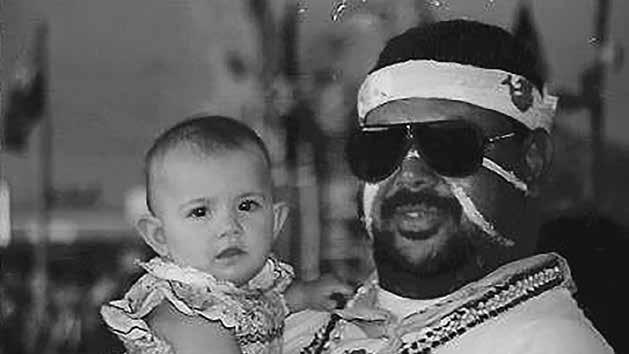
21 minute read
indigenousdads – happy families responding to racism
Following a controversial cartoon in the Australian newspaper in August, an Adelaide man was the source of a social media movement promoting strong relationships with Indigenous fathers and their children.
The cartoon by Bill Leak depicted a police officer holding an Aboriginal boy by the scruff of his shirt while talking to the boy’s Aboriginal father. The conversation implies that the father is an alcoholic and does not know his own son.
Advertisement
The cartoon was publicly rejected by many people, including the federal Indigenous Minister Nigel Scullion, who said that he was appalled by the publication. “Although Australian cartoonists have a rich tradition of irreverent satire, there is absolutely no place for depicting racist stereotypes,” Mr Scullion said. When Joel Bayliss, an Aboriginal man from Adelaide with cultural ties stretching from Borroloola in the Top End to the central desert area of Australia saw the cartoon, he was angry. “I wanted to channel that anger into something positive,” he told Aboriginal Way. “So Saturday morning I put a photo up of myself and my two children Ava and Isiah basically saying ‘You know what? There are Aboriginal men out there, strong Aboriginal men who know their children, who aren’t drunks and who smash that stereotype’,” he said. That tweet set off an avalanche of photos of Aboriginal and Torres Strait Islander dads with their children. It included photos from politicians, sports people and community members. “There was just a chance for anyone to say you know what this is my Dad, I’m proud of him. You’ve got prominent or just regular people in community celebrating the fact that their dad was a legend or that they know their children and that they’re role models in their community,” said Mr Bayliss. When asked if he feels this is a broader issue, if Indigenous dads are often challenged, Mr Bayliss said it is important for Indigenous people to contest stereotypes. “I think unfortunately there are negative stereotypes of Aboriginal people all over the shop and you know, we have to live with that every day, but it’s good to actually show people you know what, we’re not just people who abuse alcohol, we’re not just people that don’t know our children, so it’s good to smash that stereotype. Twitter was a good outlet to get it out there.” The Bill Leak cartoon came out shortly after the Don Dale detention scandal, where prison guards in the Northern Territory were shown on ABC’s Four Corners abusing Aboriginal children in custody. When asked if the cartoon was a response to that, and it was putting the blame for that distressing situation on the parents of the children, Mr Bayliss said history is to blame not parents. “Yes, basically by purporting negative stereotypes in that cartoon, it’s such a simplistic way just to blame the parents. You know, you’ve got 200 years of policies that have impacted on Aboriginal people, you’ve got loss of culture, you’ve got loss of identity, and you’ve got loss of land.” That significantly impacts on young people in youth detention, so it’s such a complex issue that can’t be answered by purporting negative stereotypes. And it’s such a simplistic way to just blame the parents. Some other people need to take responsibility as well,” he said. Looking forward, Mr Bayliss believes that the #Indigenous Dads movement will continue to have a positive influence on debate.
“I don’t think it’s the end of it, I think it’s a start to get that conversation going, because Indigenous Dads was a moment in time, and you know if something happens in the future, people will go back and say well we started that conversation, what can we do to move forward now?” said Mr Bayliss.

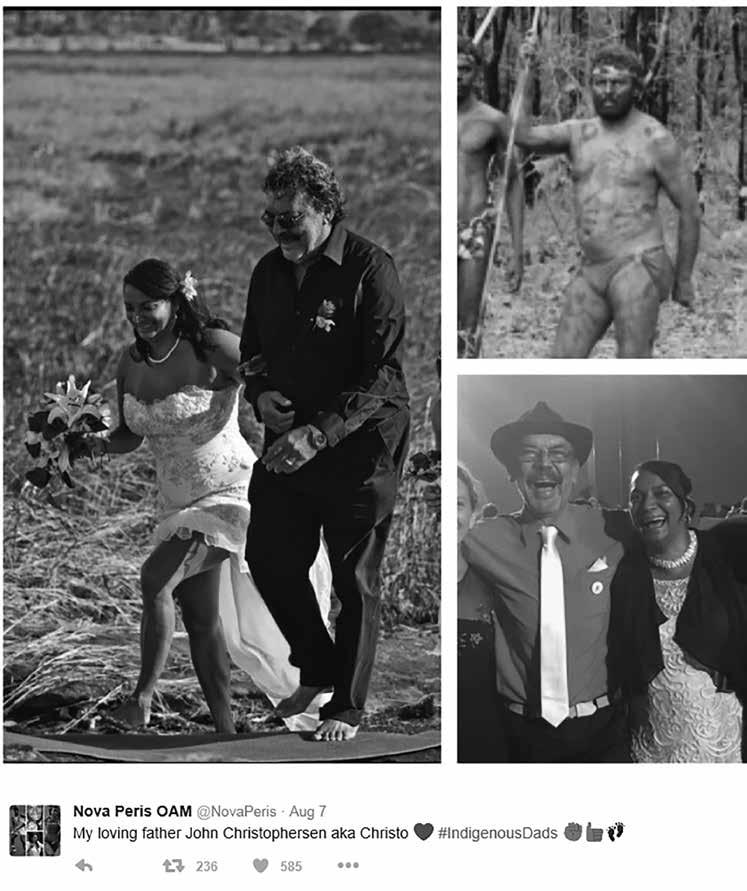
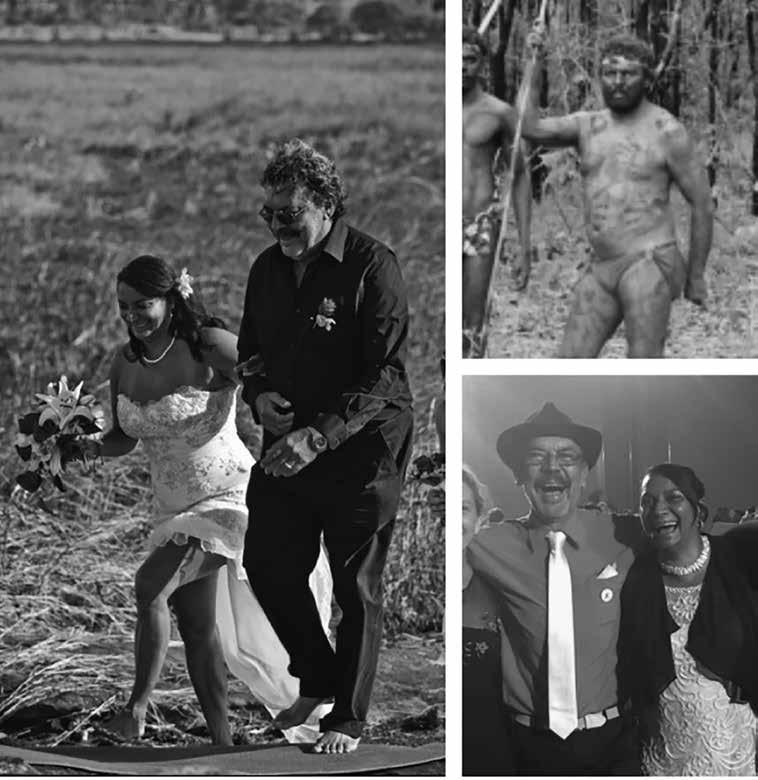
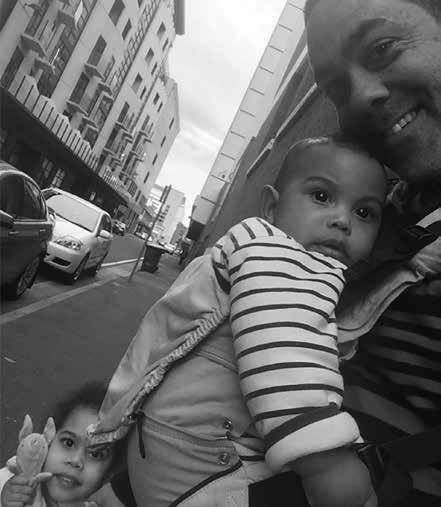

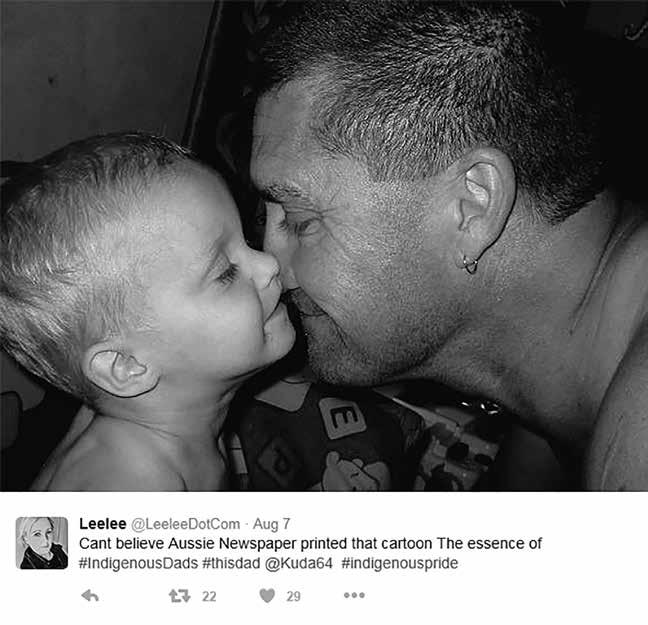
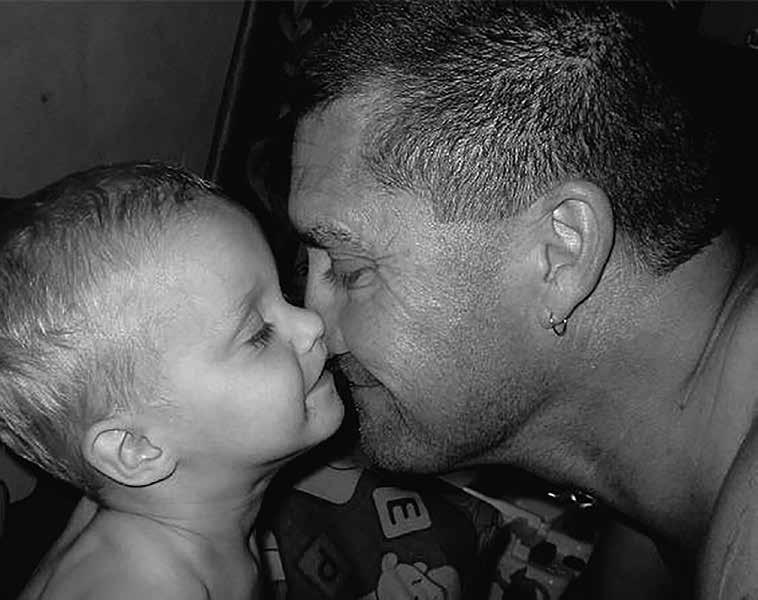
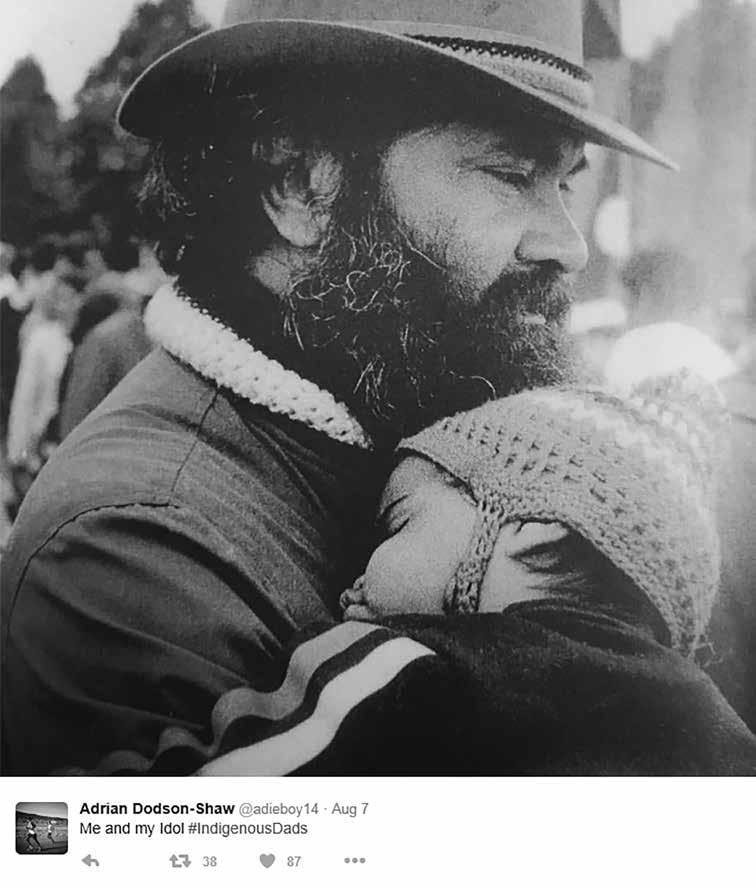
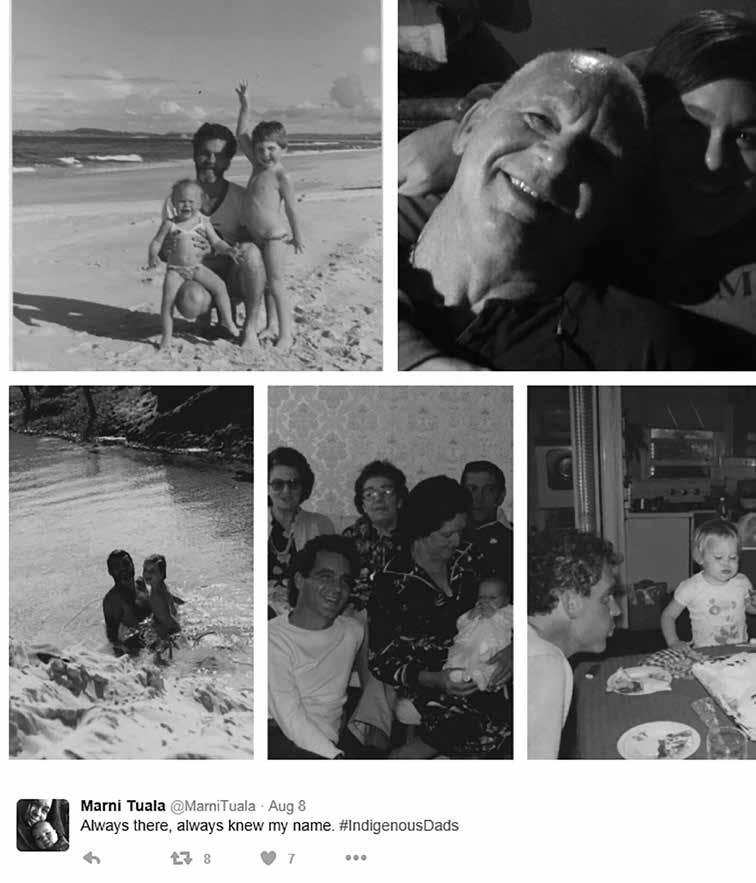
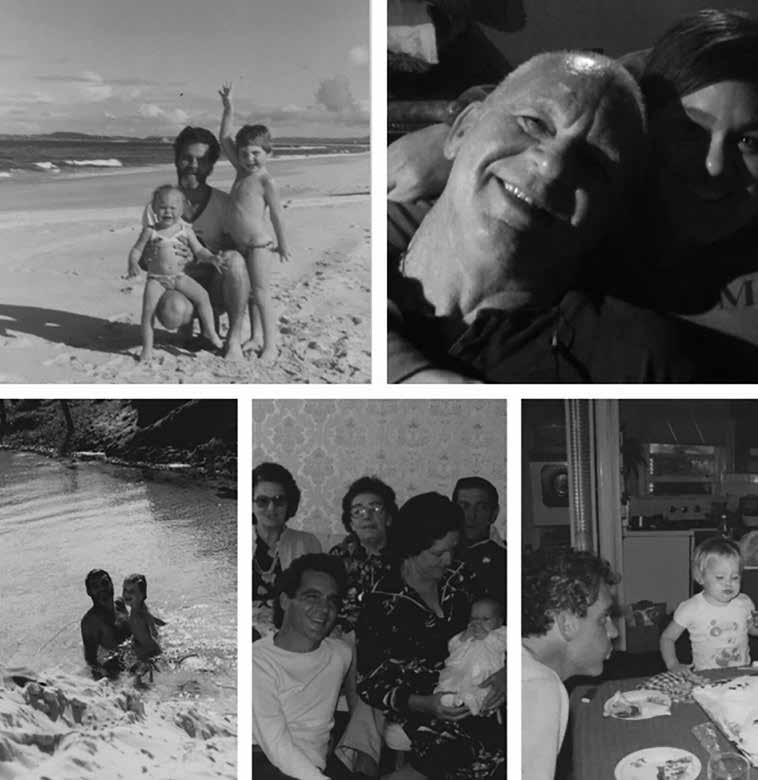

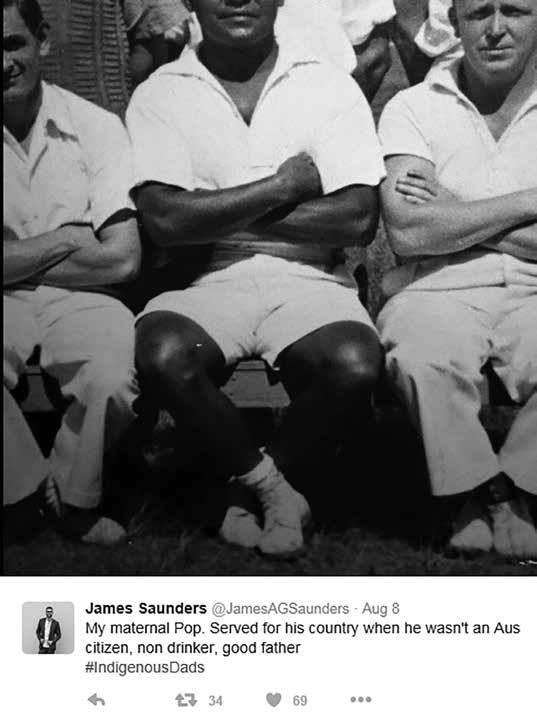
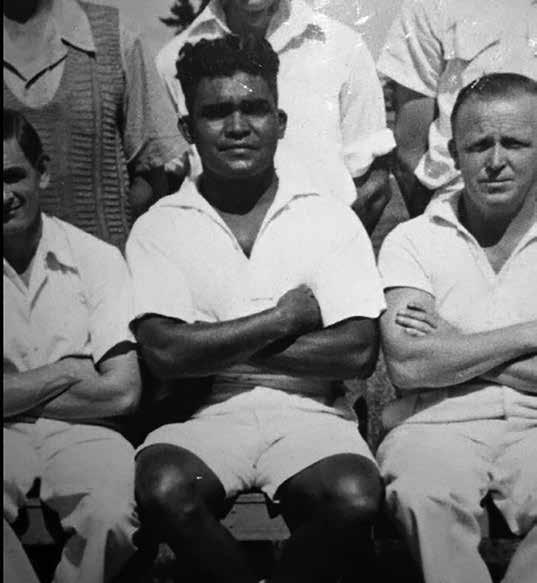
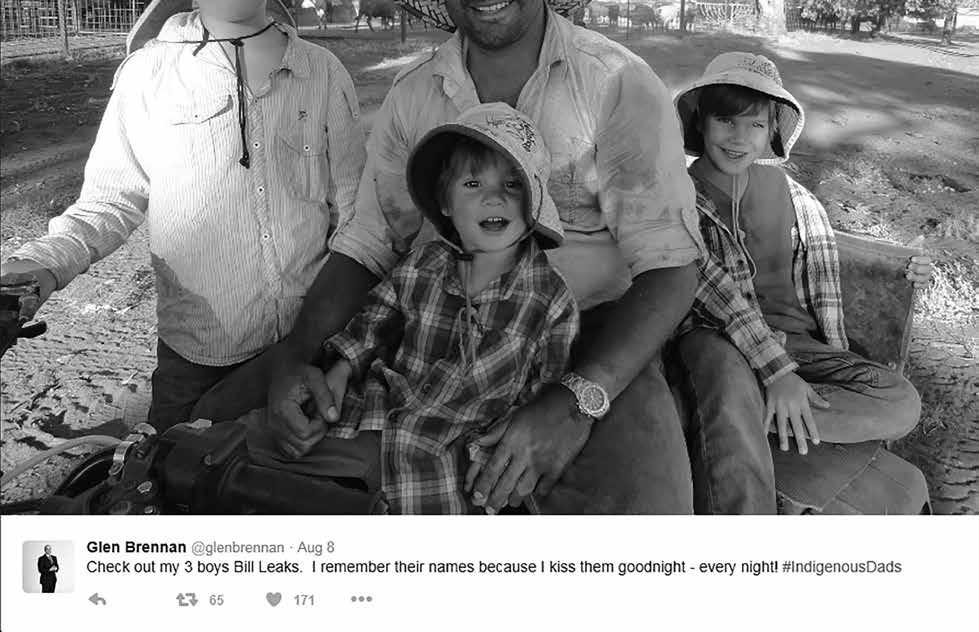
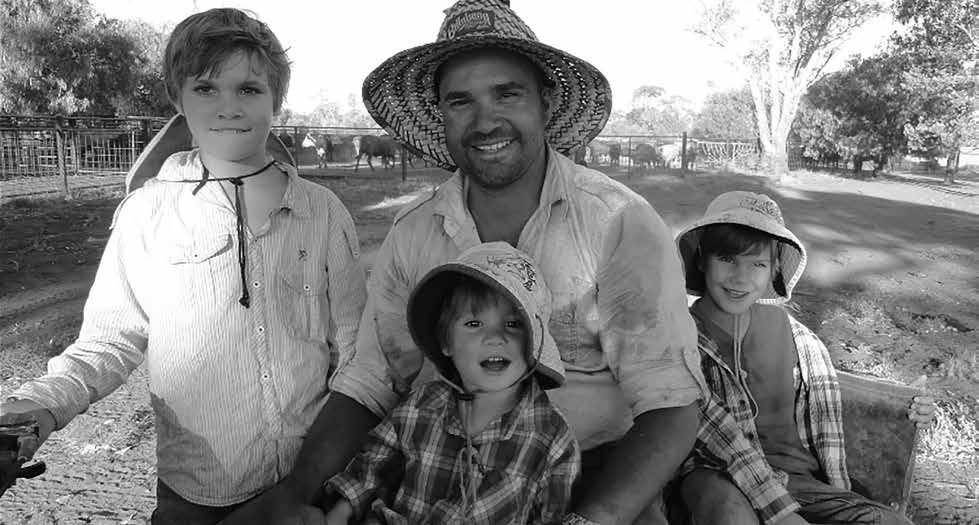
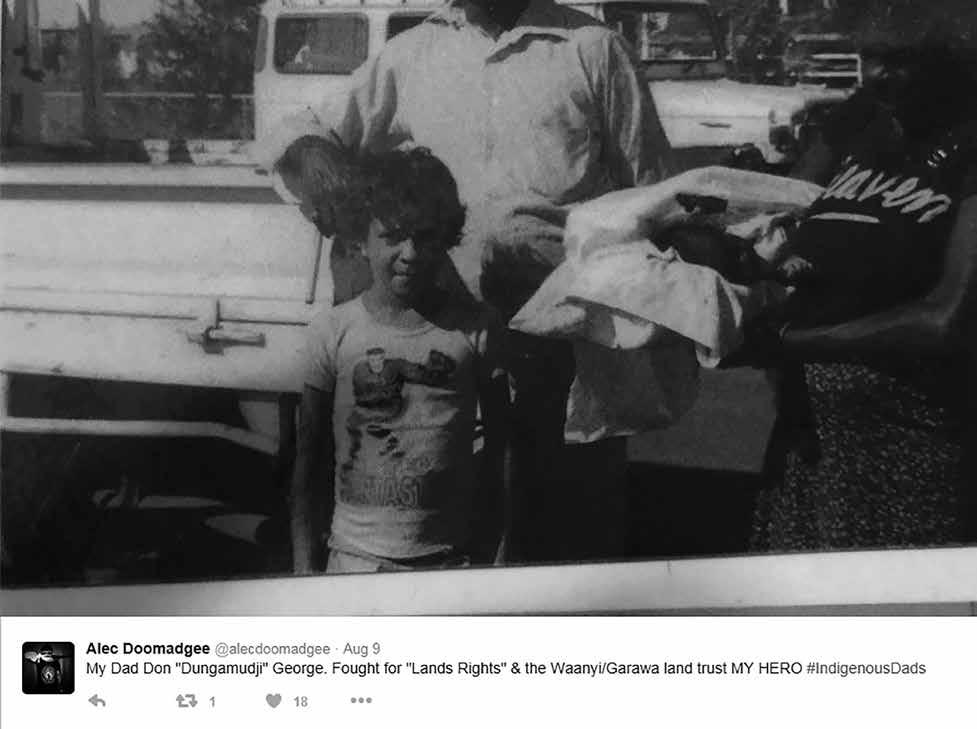
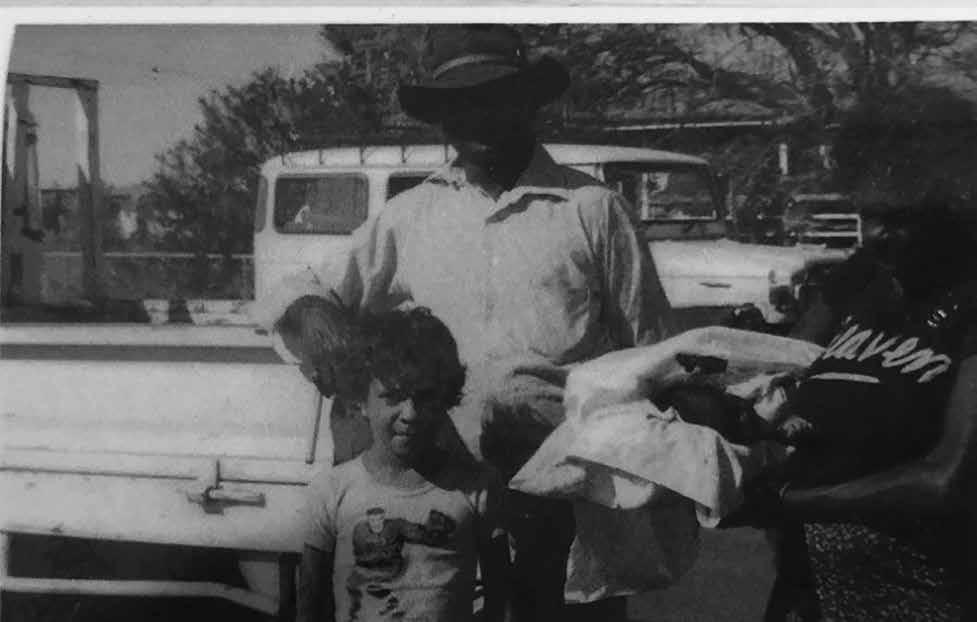
Warndu – local native food business takes old skills to new heights
Local food business Warndu has joined the Australian native food revolution in a big way since its launch earlier this year. Located in Bowden, Adelaide, Warndu is run by food guru Rebecca Sullivan and partner, Damien Coulthard, who is from Adnyamathanha country. Mr Coulthard said the idea to launch a native title food came to them over two years ago and they have been working hard to make it happen ever since. “The idea came about two and a half years ago but its fruition has been this year. We officially launched in May 2016 when our products were available in retailers and online. Our products include native infused oils, wattleseed balsamic, kangaroo broth and a selection of carefully blended native teas (we call them brew bags),” he said. Mr Coulthard said people are enthusiastic about their products. “We recently did a pop-up Australian Broth bar called Brew and Broth to share our products with people. It was a huge success and people loved that we made a truly Aussie pho by replacing Asian ingredients with Australian ones.
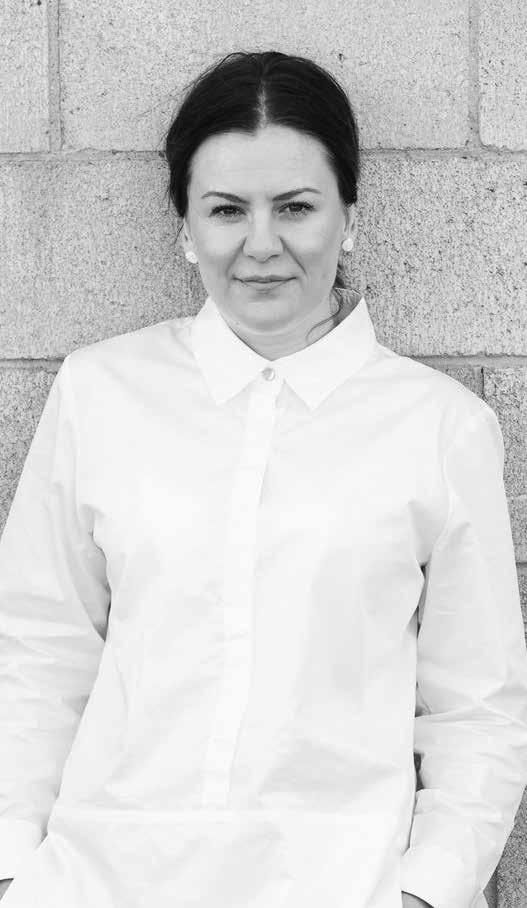
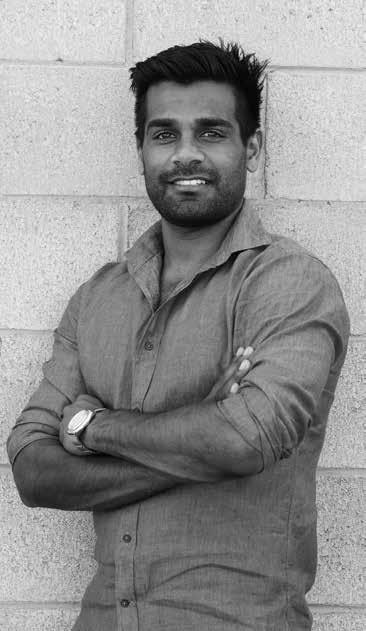
Above left: Rebecca Sullivan. Above right: Damien Coulthard.
The most popular broth on the night was Kangaroo with Smoked Emu and Native Greens,” he said. Through Warndu, Mr Coulthard hopes to grow the native food business and build direct relationships with communities and wild harvesters. “It is hugely important for the company to build long-term relationships with communities around Australia.”
“To be honest, it hasn’t been easy to establish a supply chain and build relationships. We have had to be really patient with the process. It has taken time to learn about these ingredients, how they work and how to use them in a modern day that is accessible to consumers” he said.

Mr Coulthard said that educating people about native food and Aboriginal culture is also high on their ‘to do’ list. “People do not know enough about Aboriginal foods. We are working hard on the education side of our business. It’s a challenge but one we are willing to take on. It is a huge priority for us in every product we create.” “Just by drawing people to the (Aboriginal) word – that always leads to questions about different nations/ countries within Aboriginal culture. We respect the food culture and we are also continually learning from others.” Ms Sullivan and Mr Coulthard see Warndu growing within the local food industry and beyond. “We have big plans but it’s all about the industry growing sustainably and respectfully. As well as collaborating with other people in the industry, asking questions, learning and growing the brand organically, with integrity. We plan to go global and we are already doing that through online sales,” said Mr Coulthard.
For others who may be wanting to start their own business Mr Coulthard said to follow your dream. “Don’t be afraid of failure, it can cripple you. Strategise and spend time on the business not just in it! Be brave and share your passion.” Warndu is the Adnyamathanha word for good. The foodie couple have interpreted this word to stand for good emotionally but also socially, nutritionally and environmentally too. “By buying Warndu you do good,” said Mr Coulthard.
Damien Coulthard is a Board Director of South Australian Native Title Services.
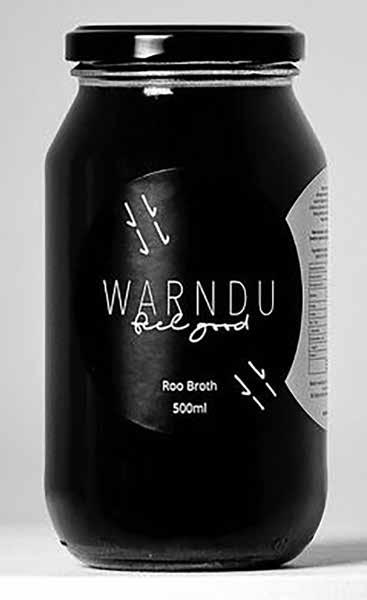
Two Sisters
The gripping true story of young Walmajarri sisters, Ngarta and Jukuna and their exodus from the Great Sandy Desert during a period of extraordinary change.
Ngarta lived in terror of the two men. She had seen them spear her mother and kill her grandmother and then her brother… she kept wondering who would be next. When she had the chance, she took her mother to one side. “I said to my mother: ‘You and me’ll have to go, run away in the night. They might kill us.’ But my mother wouldn’t listen…” The next afternoon, when the two brothers were out of sight, Ngarta ran away. Ngarta and Jukuna lived in the Great Sandy Desert. They traversed country according to the seasons, just as the Walmajarri people had done for thousands of years. But it was a time of change. Desert people who had lived with little knowledge of European settlement were now moving onto cattle stations. in review
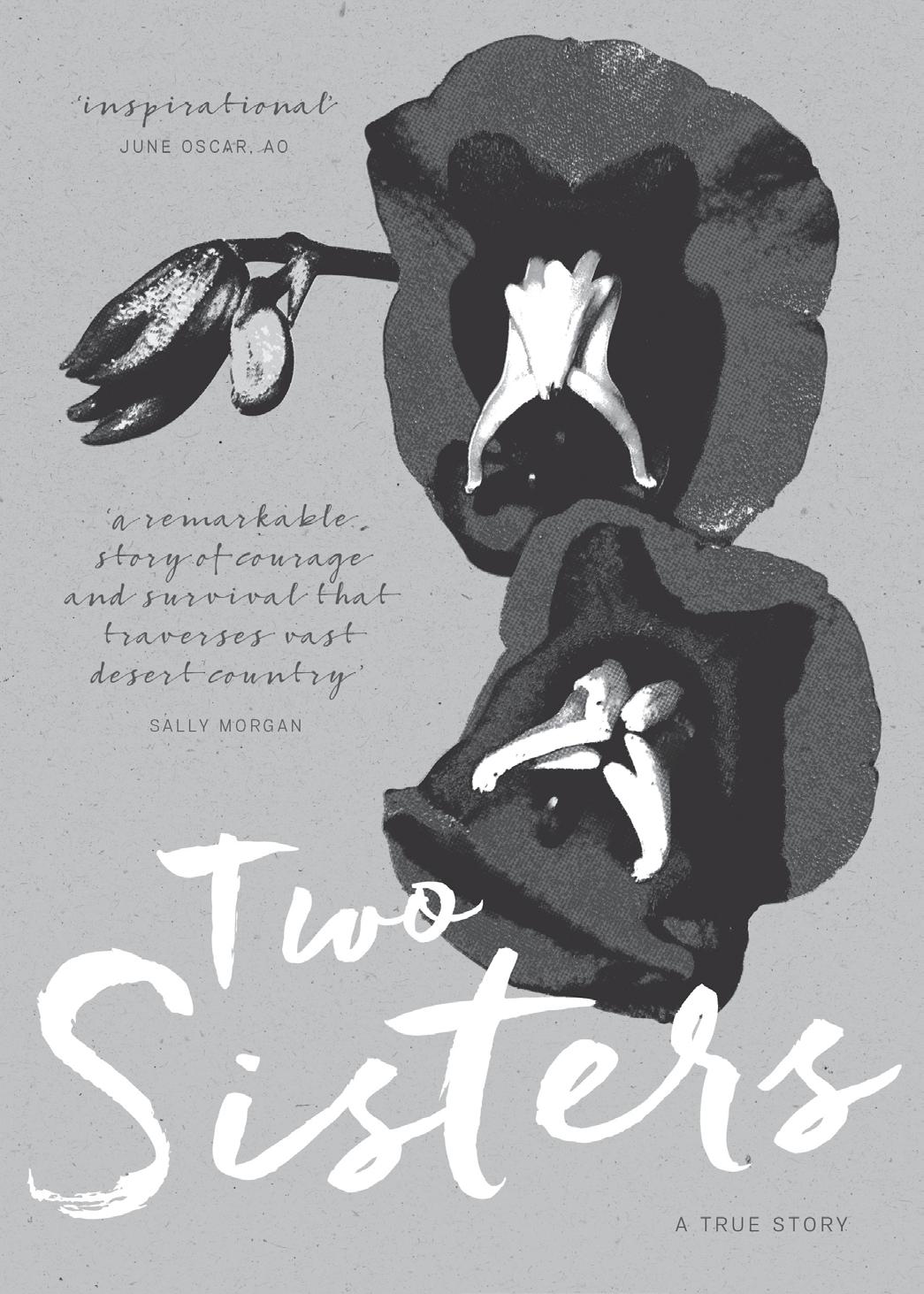
Sally Morgan Those left behind were vulnerable and faced unimaginable challenges. In 1961, when Jukuna leaves with her new husband, young Ngarta remains with a group of women and children. Tragedy strikes and Ngarta is forced to travel alone. Her survival depends on cunning and courage as she is pursued by two murderers in a vast unforgiving landscape. Jukuna’s rich account may be the first autobiography written in an Aboriginal language. Presented in English and Walmajarri, her determination to see her language written has made her one of our most valued authors.
About the authors
Ngarta Jinny Bent spent her early years as a hunter and gatherer. As a young woman, she moved onto stations in the Kimberley. Ngarta’s art work has been exhibited in Austalia and overseas. She died in 2002.
Jukuna Mona Chuguna walked out of the desert in 1961. She worked on cattle stations and moved to Fitzroy Crossing in the 1970s. She was one of the first women to attend Walmajarri literacy classes and learn to write English. Jukuna travelled in Australia and overseas to exhibit her paintings. She died in 2011. Pat Lowe migrated from England to Australia in 1972. She worked as a psychologist in Fremantle and later moved to Broome. In 1986, Pat lived in a desert camp with artist Jimmy Pike, where she came to know Jukuna. Pat Lowe has published widely. Eirlys Richards first studied Walmajarri with the goal of teaching literacy and Bible translation in the late 1960s. She moved to Fitzroy Crossing and has maintained her link with Walmajarri people ever since. She has published several texts on the Walmajarri language.
Available in all good bookshops and from Magabala Books RRP $24.99
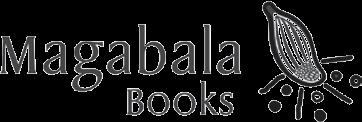
Reflecting on a nuclear legacy through creative ar ts
Tandanya is currently hosting an internationally focussed, multi-arts showcase highlighting the history and current issues of nuclear activities, featuring work by artists from Yalata Anangu community.
The Nuclear exhibition is presented by Arts Company, Alphaville, to showcase a program linking artists with communities that have experienced the atomic bomb.
In Australia that means the Maralinga communities and nuclear veterans. Internationally, the Australia Council funded project worked with Japanese atomic survivors and nuclear veterans in Britain.
Works on show at Tandanya include the sculpture Tree of Life, Gift of Peace, an immersive digital projection arena featuring a piece called Ngurini, a collection of paintings done by three generations of women from Yalata and a collection of photographs from the Irati Wanti anti-nuclear campaign. The original ‘Tree of Life’ sculpture sits in the Nagasaki Peace Park in Japan. A replica of the artwork is at the Tandanya show. Stephen Harrison is one of the contributors to the Tree of Life work. He is a Mirning and Kokotha man who became involved in the project when he was living at Oak Valley. “My involvement from that project was I was employed about at the Yalata as a carpenter. Paul’s group asked for Yalata to come up with the design because of the involvement with the atomic testing out at Maralinga and he sent a sculptor around, a chap by the name of John Turby.” John just wandered into my workshop one day and we got talking and I offered as much assistance as I can to him and I became involved with the project.” he said.
A group of people travelled to Nagasaki to see the location and the other international contributions on site before they finalised the design. Mr Harrison says the focus was always about finding a unique way to convey peace. “Well we I think we’re trying to get something that led towards peace. I sort of came up with the idea that the dish is an offering – food, water, giving and I sort of come to the conclusion that that would represent peace as an offering,” he said. The sculpture is cast from a real tree, a Western Myall (Garia) in a shape that looks almost human. “I’d describe it as a body with his arms out, with a dish in his hands offering. I thought that maybe because that dish itself is made from that particular tree, the whole the idea of sort of the bottom of the tree running up towards the dish with the branches coming out, representing the arms. Very similar to a person. Because of that dish was made from that tree, so it had a close connection to it,” he said. A unique digital projection arena at the exhibition features a production which involved many people from the Yalata community alongside artists from across Australia. Paul Brown described it to Aboriginal Way.
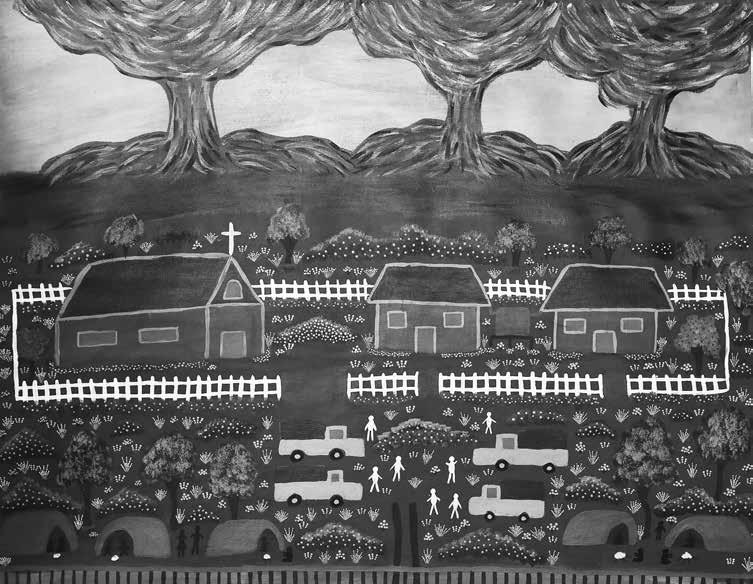
“Ngurini, which means ‘searching’ is the result of a collaboration between digital artists and local community members wanting to tell the story of how families
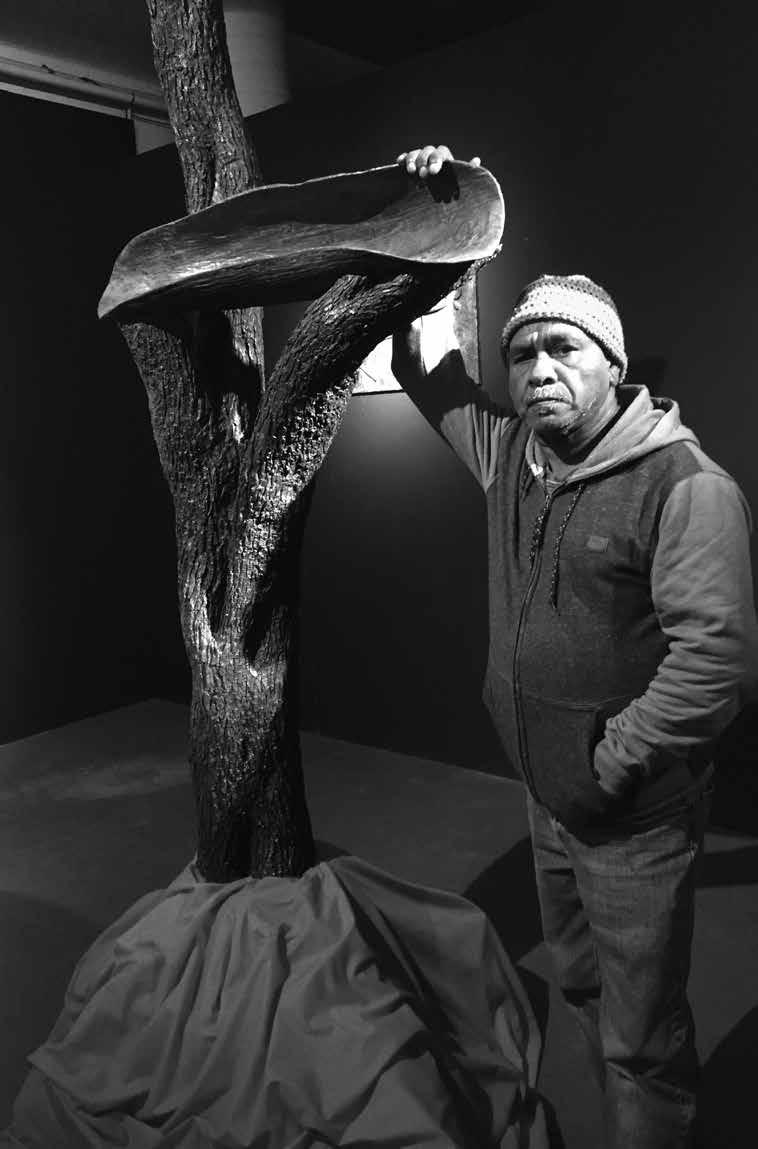
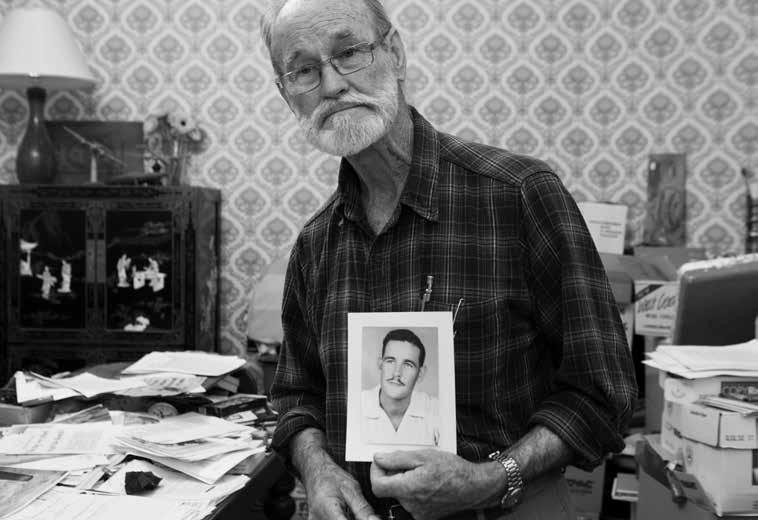
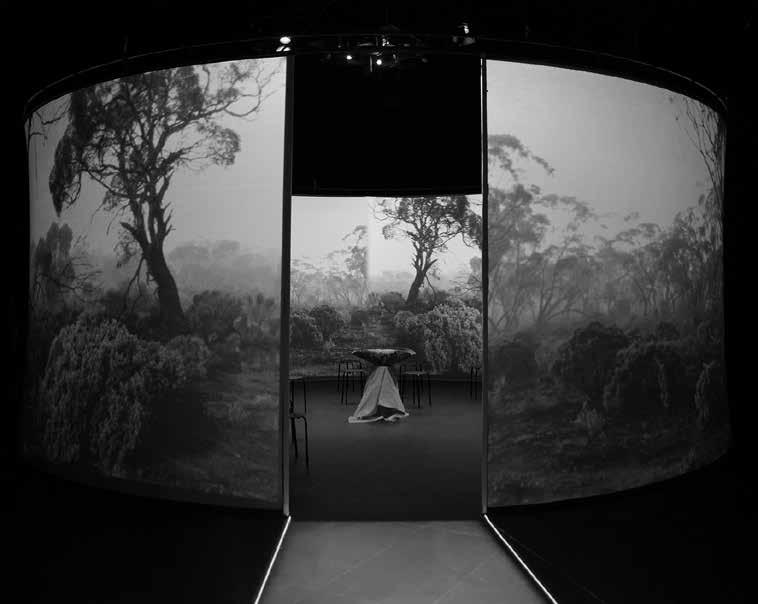
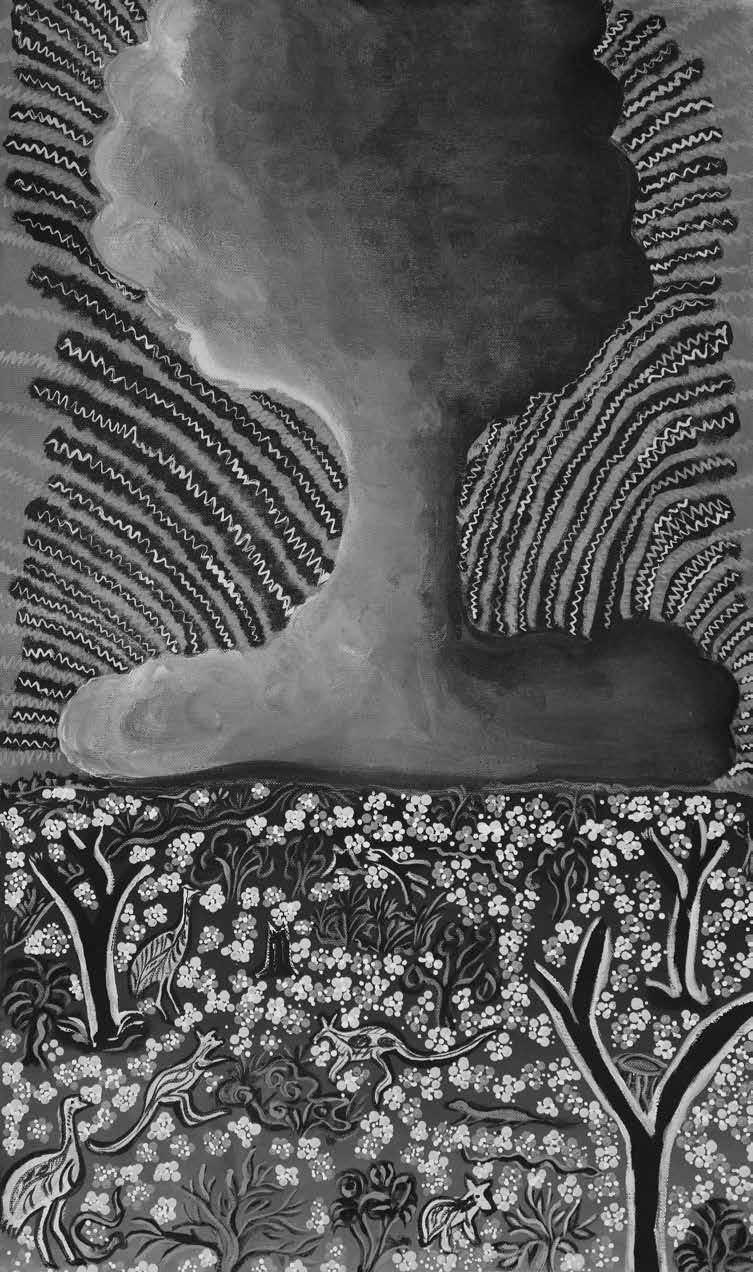
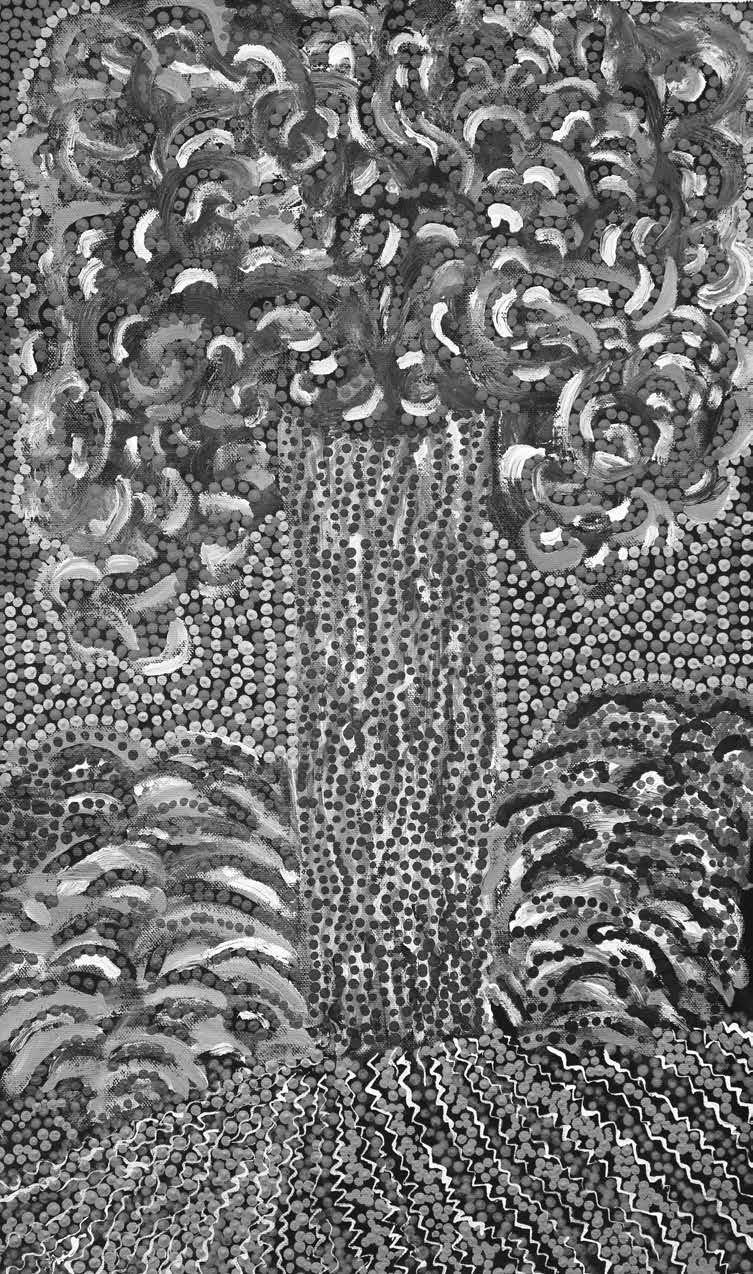
migrated from the area around the Ooldea mission at the time of the atomic tests,” he said. “It’s a 20-minute piece and its expressionistic, it brings the story together in a way which is meant to immerse the audience within the land and within the community of families that have moved away from Maralinga and away from Ooldea. So if you are walking into it, you go into a darkened space, take a seat amongst other people that you can see and you communicate with that audience while the projection happens around you,” he said. The Irati Wanti anti-nuclear campaign, well known to many people in South Australia, also has a place in the exhibition. Mr Brown explained how that came about.
“The project that we’ve been running over three years has coincided almost by chance with the Royal Commission into the Nuclear Fuel cycle. It’s no secret that a number of Aboriginal Communities have expressed their opposition to that,” he said. “This set of photographs arise from an earlier phase of protest, going back to 2002, 2003. The title ‘Nuclear’ for the exhibition is meant to encompass a number of perspectives from artists on nuclear issues more generally. We have focussed on the experience of atomic bomb survivor communities, but there’s no doubt that that experience resonates with the current public debate about nuclear issues more broadly. So in a way the exhibition, the showcase is there as an extra contribution to that public debate. It’s a reminder if you like, of previous atomic history in South Australia and a history that is relevant for all Australians,” said Mr Brown. A group of paintings by Yalata women also features at Tandanya and for Paul Brown achieves an important goal of the project of sharing the stories of atomic displacement across the generations. “In the showcase is a group of 17 paintings which was done by three generations of women and that tells and retells a little story of migration, but because they sat together they exchanged that story as they painted.”
Mr Harrison reflected on how creative arts like the sculpture and other items produced for the program can contribute to the debate over nuclear issues.
“What it brings to the debate, I think, is awareness, people have got to see the effect of it and its and the harm that it’s done to people, so we need to keep that strong. So that people don’t lose track of things,” said Mr Harrison.
Mr Brown told Aboriginal Way that the Yalata community hoped that the project and exhibition could make the story of atomic experience go far and encourage people to understand and even visit the land around Maralinga.
“And you can, you can sign up to do a tour. So now that the Maralinga lands have been handed back and there is Aboriginal control over what happens there, that’s the thing that they would like to see happen, for people to know it and visit it and understand it in person.”
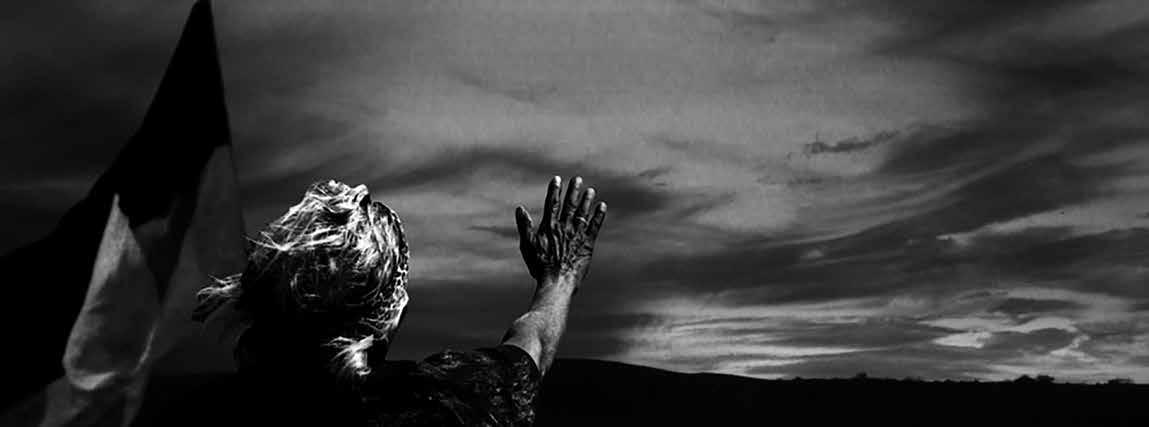
‘Nuclear’ is on at Tandanya National Aboriginal Cultural Institute 17 September – 12 November 2016
2016 Native Title Conference presentations now available to view online
Each year the National Native Title Conference attracts an expanding number of Indigenous organisations, native title holders and claimants, lawyers, academics and representatives from government agencies.
The 2016 National Native Title Conference ‘strong culture, strong country, strong future’ was co-convened by AIATSIS and the Northern Land Council (NLC), and hosted by the Larrakia people in Darwin, NT in June this year.
The program included 38 sessions, 80 presentations and over 150 speakers, and highlighted being on country, practising and learning culture, community and recognition and featured a cultural program of dancing, singing and bush walks.
A selection of presentations are now available to view online. To access the presentations, please download the interactive program from the AIATSIS website at http://aiatsis.gov.au

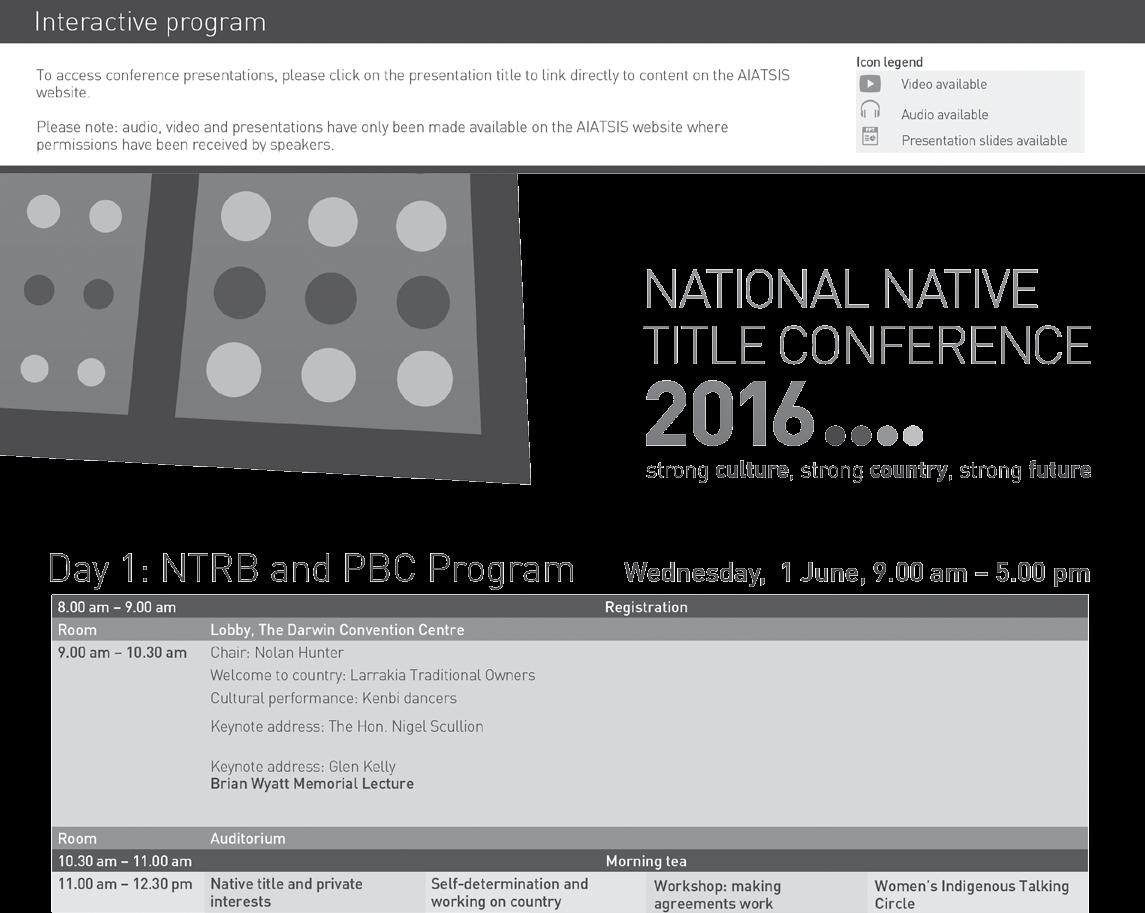
Crows to mentor remote students
Adelaide Crows AFL club is partnering with the Federal Government to deliver the Ready Set Crow Project to help Indigenous children from remote South Australian communities attend school in Adelaide.
The Ready Set Crow Project provides mentoring and support to primary school students in years 5, 6 and 7 from remote communities across SA.
The project involves Adelaide Football Club staff directly engaging with students and their families to promote opportunities for the students to further their education and access boarding school facilities in Adelaide.
Adelaide Football Club CEO, Andrew Fagan, said the club was thrilled to be able to extend its reach in the Anangu Pitjantjatjara Yankunytjatjara (APY) Lands and Far West Coast regions. “The Ready Set Crow Project commenced last year as an intensive mentoring programme designed to engage youth, provide support to families and students and encourage educational pursuits in partnership with the Wiltja Residential Programme,” Fagan said. “Led by Crows legend Andrew McLeod and his wife Rachael, the program has seen great results so the club is delighted to be able to expand its work in this space thanks to the support of the Australian Government.”
Minister Scullion said attending school gave children the best chance for a good start in life. “The Ready Set Crow Project provides students with opportunities to attend school in Adelaide so they can continue their secondary education and build pathways for further education.”
Andrew McLeod recently visited Indulkana Community on the APY Lands.
SANTS joins Pro Bono Australia
South Australian Native Title Services recently joined one of Australia’s first social businesses, Pro Bono Australia.
Pro Bono Australia is a hub for the not-forprofit sector, the broader social economy and those wanting to engage with it. It was established to support organisations in and around the social sector.
Since 2000, Pro Bono has provided, media, jobs, education, skilled volunteering and other resources to people across Australia. South Australian Native Title Services has taken the opportunity to advertise in Pro Bono’s magazine to highlight the important work and achievement of native title groups in South Australia. Keith Thomas, SANTS CEO said it is a good time for SANTS to engage with broader audiences interested in social advancements for Aboriginal people.
“We have had some tremendous successes over the past few years and are now involving ourselves with wider social and political issues that impact native title groups. It is a good opportunity to let others know what we can offer the Aboriginal community of South Australia and other interested parties,” said Mr Thomas. A Senior Teacher from Indulkana Anangu School said the students were enthusiastic about the visit.
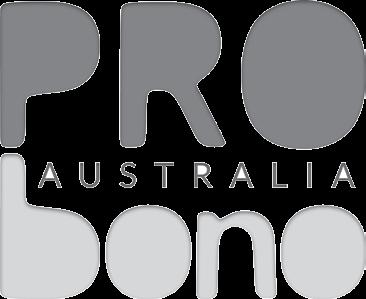
“The kids always love bumping up against celebrities, especially sports people and even more so AFL footballers. While Andrew McLeod may not be the most familiar name to the kids in 2016, having some strong role models with access to the Crows certainly raised their excitement levels.”
The teacher said the program is welcomed by the community and is a great way to inspire students to learn.
“It encourages the kids to make the right decisions, knowing that the guys from the Crows will be back to help them along. It certainly acts as a reward and an incentive to make strong choices. It’s really important as well that the same guys from the Crows keep coming back so they develop those relationships. Our kids are much more likely to see benefit from a relationship with Eddie or Josh than a visit from a Crow.”
The teacher said the program allows for students to become familiar with city life as well as Anangu life.
“It’s important that Anangu have recognised the need for Anangu kids to be strong in both worlds. Experiences in Adelaide are an essential part of developing this skill.”
SANTS is recognised and funded as the Native Title Service Provider for South Australia by the Commonwealth Government under s203FE(1) of the Native Title Act 1993 (Cth).
SANTS provides legal representation and guidance, anthropological research and community liaison to support native title applications, negotiations and determinations.
SANTS performs all of the functions of a representative body in native title throughout South Australia. Those functions as set out in Section 203B of the Native Title Act are:
• Facilitation and assistance; • Certification; • Dispute resolution; • Notification; • Agreement making; • Internal review; and • Other functions.
SANTS provides a wide range of services to South Australia’s Aboriginal Nations who hold or may hold native title.
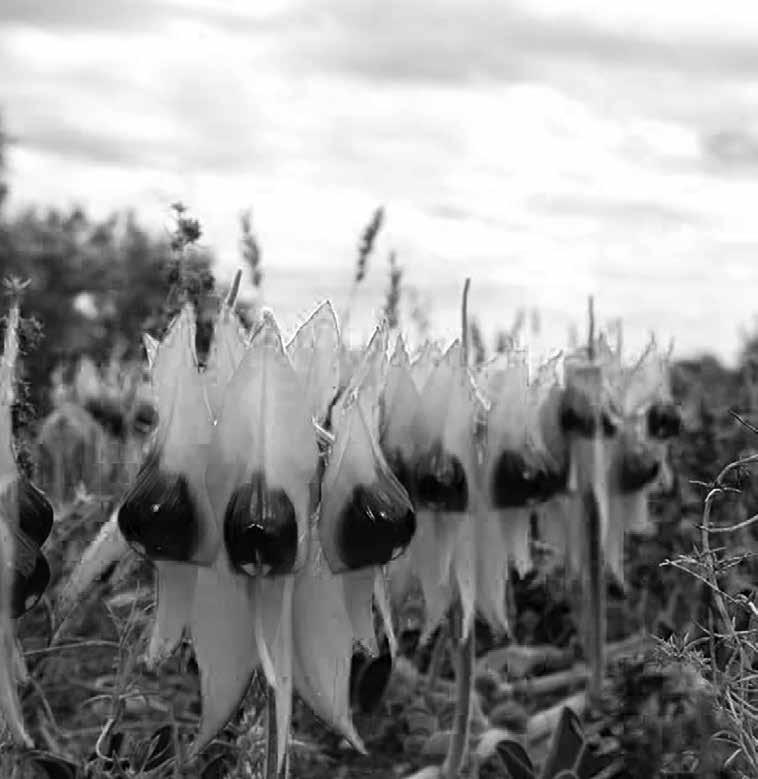
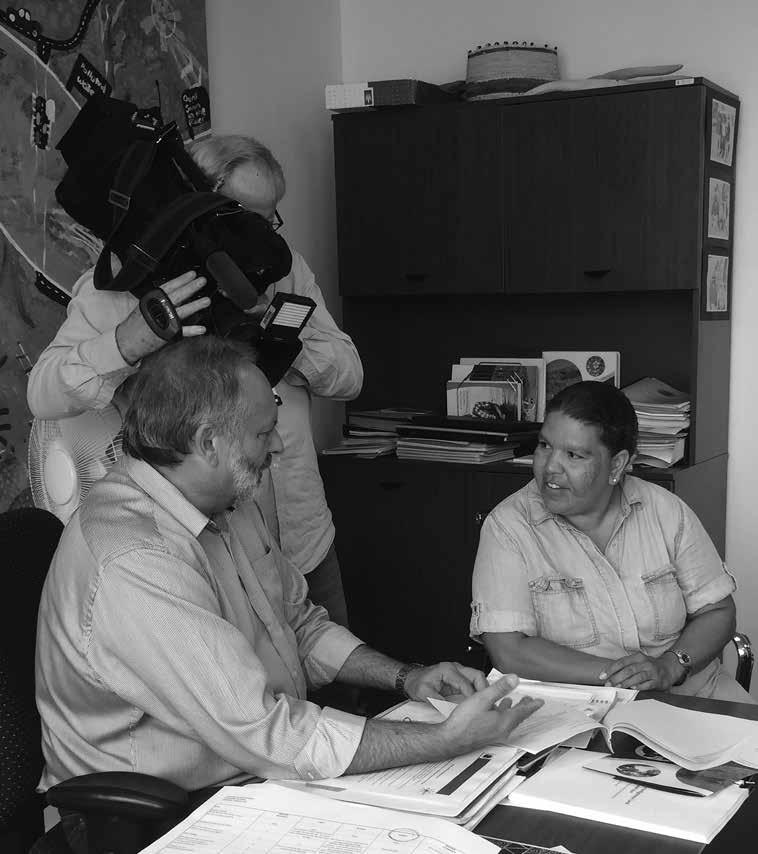
Clockwise from top right: Tauto Sansbury and Lucy Kingston outside Parliament House on Survival Day 2016; Field Project at Gawler Ranges National Park; Maria Almeida and Chantal Bates at this year’s Sorry Day; Keith Thomas and Karina Lester being interviewed for nuclear fuel proposal on ABC; Sturt Desert Pea, APY Lands. SANTS is committed to working with Aboriginal Nations to realise their aspirations, which are often broader than the recognition of native title. Native title determinations now have been made over more than half of South Australia. There are currently fifteen PBCs established in SA to manage native title rights and interests. SANTS works with many of these native title groups to enhance their position to manage their native title outcomes, comply with legislative responsibilities and develop and grow to achieve their aspirations. Our activity in this area includes: • developing and strengthening governance practices including through provision of legal advice, development of corporate policies and delivery of education and training initiatives; • facilitating community-based planning to develop strategic and operational plans;
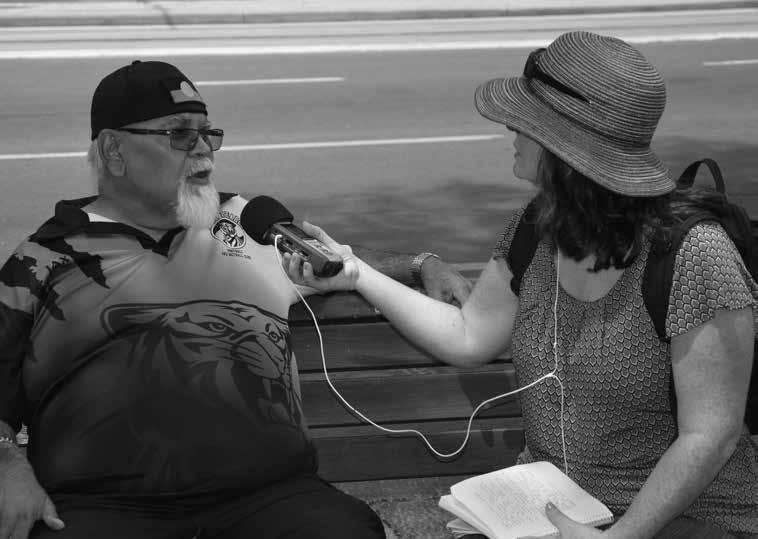
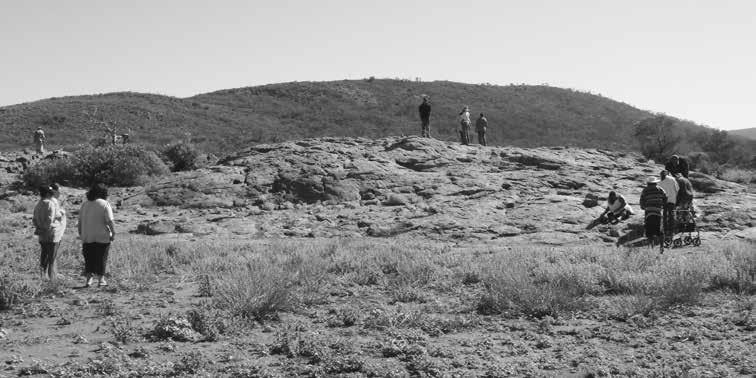
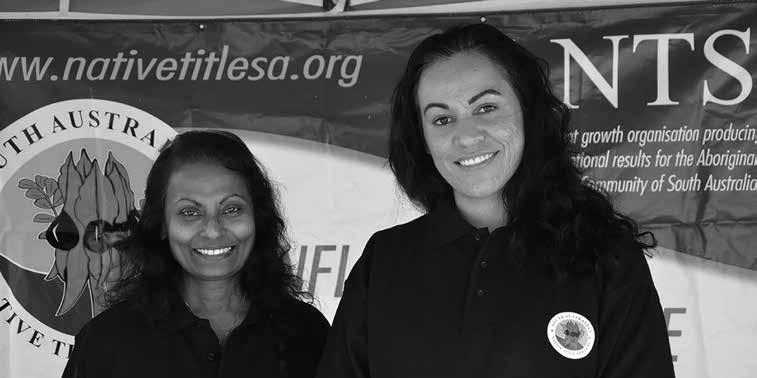
• developing and enhancing stakeholder relationships;
• implementing agreements and identifying, managing and enjoying native title benefits; • accessing business development services and advice;
• identifying and delivering community development projects including to protect cultural heritage and country;
• engaging in policy and legislative reform and implementation.
Recently, SANTS delivered its first corporate governance training program to PBCs and also delivered two financial management training sessions in partnership with PwC’s Indigenous Consulting (PIC).
In our work in community development, our focus is currently on protecting cultural heritage and caring for country. These collaborative caring for country projects are important for the ongoing exercise and protection of native title rights and interests.
SANTS welcomes Aboriginal Nations and native title groups who would like to work more with us.
SANTS receives funding from the Commonwealth and South Australian Government to perform its functions and to provide other services.




